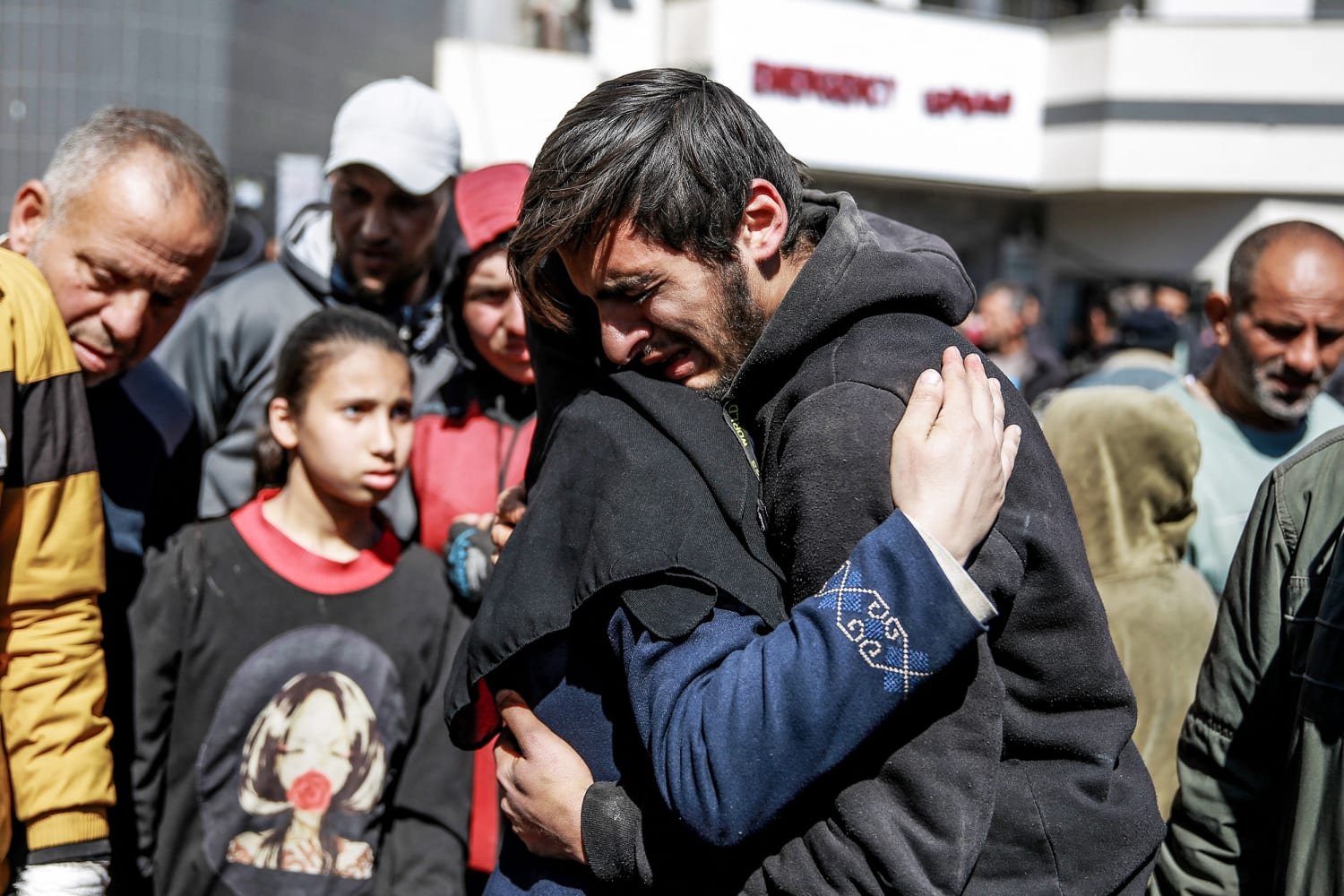Israeli Soldier Released by Hamas Amid Ceasefire Deal as Humanitarian Crisis Deepens in Gaza
Hamas released an Israeli soldier on Thursday as part of a ceasefire agreement with Israel, marking another exchange in the ongoing prisoner swap between the two sides.
Agam Berger, the freed soldier, was handed over to representatives of the International Committee of the Red Cross in the Al-Razan area of the Jabalia refugee camp in northern Gaza, according to an Anadolu correspondent. The transfer was conducted under strict security measures, ensuring compliance with the terms of the ceasefire deal.
As part of the same agreement, two more Israeli captives are expected to be released later in the day in exchange for 110 Palestinian prisoners currently held in Israeli jails. These releases follow previous exchanges that have taken place since the ceasefire went into effect.
Military and Humanitarian Response
The Israeli military confirmed it had received the freed soldier from the Red Cross and that she was being transported to a military base near the border settlement of Re’im for an initial medical checkup. Officials stated that she would undergo further evaluations before being reunited with her family.
During the official handover, Red Cross representatives signed necessary documents to complete the release process. This standard protocol has been followed in previous prisoner exchanges to ensure transparency and accountability.
Meanwhile, the situation in Gaza remains dire. The first six-week phase of the ceasefire, which began on January 19, temporarily halted Israel’s military campaign that has caused catastrophic devastation. Since October 7, 2023, the Israeli offensive has claimed the lives of over 47,400 Palestinians—many of them women and children—while injuring more than 111,000 others.
Reports indicate that over 11,000 people remain missing amid the widespread destruction, with many feared to be trapped under rubble. The humanitarian crisis continues to worsen, as shortages of food, water, medical supplies, and electricity have severely impacted Gaza’s already fragile infrastructure.
Ceasefire and Prisoner Exchange Details
Since the ceasefire was implemented, Hamas has released eight Israeli captives, including four soldiers, in exchange for 290 Palestinian prisoners. Under the first phase of the agreement, a total of 33 Israeli captives are expected to be released in return for an estimated 1,700 to 2,000 Palestinian detainees. These exchanges have been closely monitored by international organizations to ensure compliance.
Palestinian detainees released by Israel have included minors, women, and individuals who had been held without formal charges or trial under Israel’s controversial administrative detention policy. Many of the freed detainees have spoken out about harsh conditions in Israeli prisons, where reports of mistreatment and abuse have sparked global condemnation.
International Legal Actions Against Israel
As the humanitarian toll continues to rise, international legal bodies have taken action. In November 2024, the International Criminal Court (ICC) issued arrest warrants for Israeli Prime Minister Benjamin Netanyahu and former Defense Minister Yoav Gallant, charging them with war crimes and crimes against humanity related to the Gaza conflict.
Additionally, Israel is currently facing a genocide case at the International Court of Justice (ICJ). The case, brought forth by South Africa and backed by several nations, accuses Israel of committing acts of genocide against Palestinians in Gaza. The ICJ has called on Israel to halt military operations that could contribute to further civilian casualties.
Global Reactions and Ongoing Diplomatic Efforts
The latest prisoner exchange has drawn international reactions, with world leaders urging both sides to uphold the ceasefire agreement and work toward a lasting resolution. The United Nations, European Union, and various human rights organizations continue to call for an end to hostilities and immediate humanitarian aid for Gaza’s suffering population.
While the ceasefire has provided temporary relief, tensions remain high, and concerns persist about the possibility of renewed fighting once the current agreement expires. Diplomatic efforts, including mediation by Egypt, Qatar, and the United States, aim to extend the ceasefire and facilitate further negotiations for a long-term truce.
For now, as humanitarian groups continue rescue and relief operations, the world watches closely, hoping for further de-escalation and a path toward peace.





